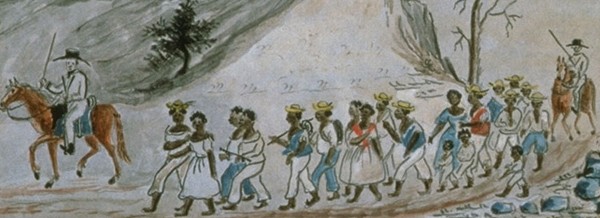 Having a great time here in Milwaukee at the OAH/NCPH. I just finished participating in a lively roundtable discussion on the Civil War 150th. The participants covered a wide swath of the education and public history field and the topics ranged from how to engage the general public to shaping content on the Internet. Tomorrow morning I am giving a talk on teaching Civil War movies, which should be a lot of fun.
Having a great time here in Milwaukee at the OAH/NCPH. I just finished participating in a lively roundtable discussion on the Civil War 150th. The participants covered a wide swath of the education and public history field and the topics ranged from how to engage the general public to shaping content on the Internet. Tomorrow morning I am giving a talk on teaching Civil War movies, which should be a lot of fun.
Between all the excitement I wanted to pass on my review of Glenn David Brasher’s new book,The Peninsula Campaign and the Necessity of Emancipation: African Americans and the Fight for Freedom that appeared today in the Atlantic.
I enjoyed your review of Basher’s new book. One very minor point and at the risk of being labled a Confederate apologist, some mixed-race free creoles (this term is defined differently in Gulf Coast regions) along the Gulf Coast did volunteer to serve in the Confederacy, but they were generally turned down.
The reasoning behind that volunteer effort was something the white Southerners were fighting to keep from happening; that of the black man having the same rights and equality as a white man. Those volunteers later formed the nucleus of the the 1st and 3rd Louisiana Native Guard regiments that saw the first significant fighting by black units in the war. The 1st even had black company grade officers at first who led their men into battle.
The story of the United States Colored Troops and the units that preceded them is a great part of Civil War history. The fact that the Confederacy refused to enlist black men until 1865 is a strong reflection on how the leaders of the Confederacy viewed the issues they were fighting for. The reaction of Confederate soldiers to the USCT units is also a reflection of how the white Southerners viewed the war.
I can not thank you enough for writing about my book for The Atlantic. I found your comments extremely interesting and thought provoking. Given the thrust of your essay, I’d like to mention another central element of my argument (which is not necessarily original to me, but that I promote aggressively). I do demonstrate and make much of the fact that some African Americans did immediately see the war as a potential path to liberation (ironically because many had heard their masters paint Lincoln as an abolitionist). But as you focus on, many others were not sure of Union soldier intentions and northern war policy early in the war (for good reason, considering much of the north’s initial aversion to a war of liberation). Because of this, I maintain that positive interactions between Yankees and southern blacks were crucial in encouraging slaves to flee to Federal lines. The “self emancipation thesis” suggests that there was nothing that Union troops could do to stop runaways from coming. I believe otherwise. Had runaways uniformly been turned away from Union lines early in the war when only a few slaves were “testing the waters,” it could have discouraged others from coming. But they were not universally sent back. While many slaves were turned away early in the war, or treated unsympathetically and often with cruelty by Union soldiers, many others were welcomed and treated sympathetically. It was these positive interactions that I argue helped to encourage more runaways, which soon turned into a flood, and eventually helped cause a change in northern war policies. I certainly found this to be the case on the Virginia Peninsula (starting with Butler’s famous “contraband” policy and continuing into the spring of 1862). Many who argue against the “self emancipation” thesis correctly point out that the presence of Union troops was a crucial element in emancipation. But I would add that the presence of Union troops alone did not lead to these emancipation events. Receptive Union soldiers (largely motivated by the aid that slaves provided them) was also a crucial element in encouraging slaves to view the Union army as a path to liberation.
Kevin, thank you for the review and Professor Brasher, thank you for your additional thoughts. This is a book I definitely want to read (I just ordered it!) and sorry I missed you on VBS (my wife had other ideas!).
Brad
Brad, thanks for the support and I hope you enjoy the book when you get a chance to read it. It is short and to the point, just like most of the books that I enjoy reading. I would love to read your thoughts on it if you post them here on Kevin’s site when you are done. By the way, my VBS archive should be posted on their site fairly soon. I didn’t say anything particularly brilliant, but I don’t think I made a fool of myself either. (Fingers crossed).